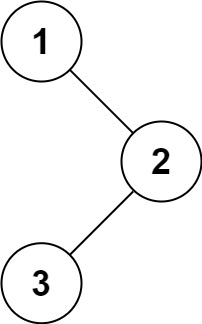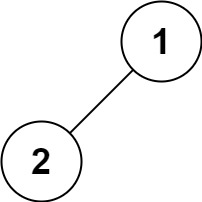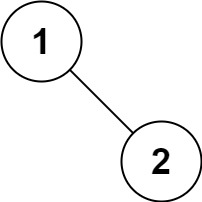94. Binary Tree Inorder Traversal
Given the root of a binary tree, return the inorder traversal of its nodes’ values.
Example 1:
Input: root = [1,null,2,3]
Output: [1,3,2]

Example 2:
Input: root = []
Output: []
Example 3:
Input: root = [1]
Output: [1]
Example 4:
Input: root = [1,2]
Output: [2,1]

Example 5:
Input: root = [1,null,2]
Output: [1,2]

Constraints:
- The number of nodes in the tree is in the range [0, 100].
- -100 <= Node.val <= 100
Follow up:
- Recursive solution is trivial, could you do it iteratively?
/**
* Definition for a binary tree node.
* public class TreeNode {
* int val;
* TreeNode left;
* TreeNode right;
* TreeNode() {}
* TreeNode(int val) { this.val = val; }
* TreeNode(int val, TreeNode left, TreeNode right) {
* this.val = val;
* this.left = left;
* this.right = right;
* }
* }
*/
class Solution {
public List<Integer> inorderTraversal(TreeNode root) {
List<Integer> res = new ArrayList<>();
List<TreeNode> s = new ArrayList<>();
TreeNode curr = root;
while (curr != null || !s.isEmpty()) {
if (curr != null) {
s.add(curr);
curr = curr.left;
} else {
curr = s.remove(s.size() - 1);
res.add(curr.val);
curr = curr.right;
}
}
return res;
}
public List<Integer> inorderTraversal2(TreeNode root) {
List<Integer> res = new ArrayList<>();
visit(root, res);
return res;
}
void visit(TreeNode node, List<Integer> res) {
if (node == null) return;
if (node.left != null) {
visit(node.left, res);
}
res.add(node.val);
if (node.right != null) {
visit(node.right, res);
}
}
}